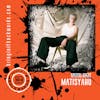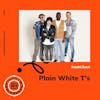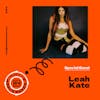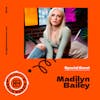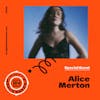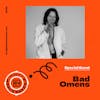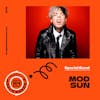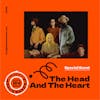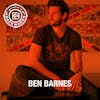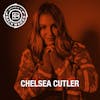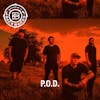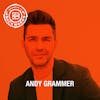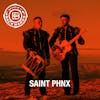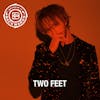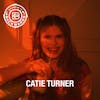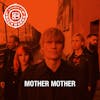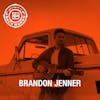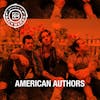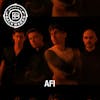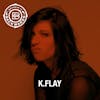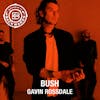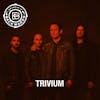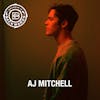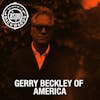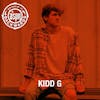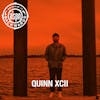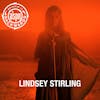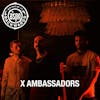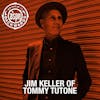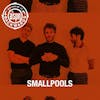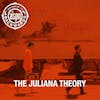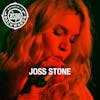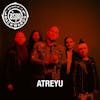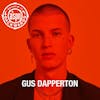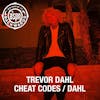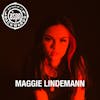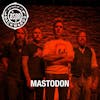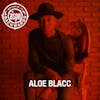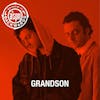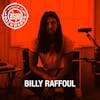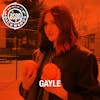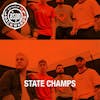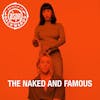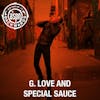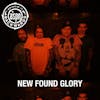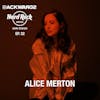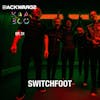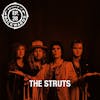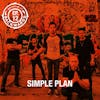Interview with Brad Barr
We had the pleasure of interviewing Brad Barr over Zoom video!
Brad Barr - the lead singer, guitarist, and songwriter of The Barr Brothers and The Slip - recetly released The Winter Mission, Barr's brand new instrumental solo guitar album through...
We had the pleasure of interviewing Brad Barr over Zoom video!
Brad Barr - the lead singer, guitarist, and songwriter of The Barr Brothers and The Slip - recetly released The Winter Mission, Barr's brand new instrumental solo guitar album through Secret City Records.
For more than 20 years, Brad Barr has been counting the number 216. It's a mysterious number that seems to show up everywhere—from clocks and license plates to Ouija boards and receipts—and now it's also sewn the fabric of his new album, like the 216 stitches on a baseball. Inspired by artists like Caetano Veloso, Mississippi Fred McDowell, D'Gary, and John Frusciante, Barr set out to make music that was naked and unprocessed, but also occasionally loud—alive with a sense of wakeful intimacy. The number 216 was a constant theme. The guitarist first encountered the so-called "magic square" during a teenage acid trip; in the years since then it's become a talisman—one of the few areas where Barr feels mystical, sensing a genuine order in the universe. These songs pay tribute to that order—from 216's lofty mathematical and astrological properties to its function as an area-code (for Cleveland).
Barr spent decades developing his visceral approach to the guitar, first with The Slip and then across three records with The Barr Brothers. The Winter Mission—the follow-up to The Fall Apartment, Barr's 2008 solo debut—had its origins in a commission from Michael Wolk, Artistic Director at New York City's All For One Theater. It "felt like a gift," Barr recalls—to have a sound he could explore all by himself, away from the road, during COVID's strange intermission.
Brad Barr is the lead singer and songwriter of The Barr Brothers, a folk-Americana band that’s been around for over a decade. They have toured with The War on Drugs, Calexico, Shakey Graves, and Patrick Watson. Their TV performances include The Late Show with David Letterman and CBS This Morning Saturday.
We want to hear from you! Please email Tera@BringinitBackwards.com.
www.BringinitBackwards.com
#podcast #interview #bringinbackpod #BradBarr #TheBarrBrothers #TheSlips #TheWinterMission #Instrumental #NewMusic #zoom
Listen & Subscribe to BiB
https://www.bringinitbackwards.com/follow/
Follow our podcast on Instagram and Twitter!
https://www.facebook.com/groups/bringinbackpod
We'd love to see you join our BiB Facebook Group.
3 (1m 12s): What's going on. It is Adam. Welcome back to bring it backwards podcast where both legendary and rising artists tell their own personal stories of how they achieve stardom. On this episode, we hung out with Brad BARR over zoom video. Brad was born and raised in Rhode Island. Moved to Boston, went to Berkeley school of music, and then eventually landed in Montreal. We talk about how Brad got into music. His brother is 22 months younger than him, and they've been playing in bands their entire life together. He tells a story about getting a guitar for Christmas. Well, the guitar was really for his brother and the drums are for him, but Santa messed up on the, on the name tag. So they swapped instruments. 3 (1m 52s): They both went to school at Berkeley right before that is when they formed their first band, the slip they were in that band for a number of years, taught around the world. And during one of the tours, his brother met a lady in, in Montreal. He ended up moving there. Brad moved there very soon after, maybe like a month after. And while they're there, that's when they started the BARR brothers band. We talk a little bit about that band being nominated for three Juno awards. I needed him to break down how two brothers from Rhode Island were able to be nominated for a Juno award. And it's pretty interesting story there. And we talk all about his brand new solo record, which is called the winter mission. And the entire record is done on solo guitar. 3 (2m 34s): There's no overdubs, there's not multiple things happening. Every song is recorded live as if he was playing it live, all guitar driven. The whole record is all guitar. It's amazing. You got to check it out. So that's called the winter mission, Brad bar, and you can watch our interview with Brad on our Facebook page and YouTube channel at bringing it backwards. It would be awesome if you subscribe to channel like us on Facebook, follow us on Instagram, Twitter, and TechTalk at bringing back pod. And if you're listening to this on Spotify or apple music, please, please follow us and hook us up with a five star review. I mean the world to us really would 4 (3m 13s): We'd appreciate your support. If you follow and subscribe to our podcasts, wherever you listen to podcasts, 3 (3m 19s): We're bringing it backwards with Brad BARR. I appreciate you doing this. This is all about you and your journey and music. And obviously we'll talk about the new record you did, which is such a cool concept where it's just all what guitar, right? 5 (3m 36s): It's all guitar, it's all unaccompanied guitar. It's all solo. It's I keep looking for the words to explain it to, to, to describe it, to sum it up. It's it's solo. It's a solo guitar record, but it's actually like single performances. So there was no, no overdubs anywhere, everything I wanted, every track. Yeah. I wanted every track to be able to be performed live, and they all are, they are alive performances. There's some editing done because a lot of the songs were just kind of sprawling improvisations. So I'd kind of have a motif or a theme or kind of a, you know, song part. 5 (4m 20s): But then I would improvise for, you know, long stretches in the studio and then kind of whittled down the song. And sometimes I'd rerecord it, like knowing how to have a more concise version could go. But in every case, it's all just 1, 1, 1 Musician. Yeah. One, one take, I guess, at, at all at all times. So that, that was as much the, the kind of challenge and the, and, and the concept behind it, as much as making a solo record. 3 (4m 56s): Wow. Do you use like pedals and stuff to kind of where you loop peddling at all? Or, 5 (5m 1s): Yeah, I did. I tried to also be, you know, kind of restrained with that too, just because I really liked the really like the idea of, you know, not to be a traditionalist or, or a, you know, pretend I'm a Luddite or anything, but just, just, just in the interest of trying to extract the most that I could, without a lot of, a lot of help from some loops and stuff, but there are at least two or three songs on there that use loops. And one of them backed like really extensively with a loop pedal connected to another loop pedal connected to another, with a delay in between. 5 (5m 45s): So there's one song on there where I really go nuts with the, with the looping. But aside from that, the rest of the loops are really kind of just ambient like an ambient thing here or there. So yeah, I tried to accomplish most of what I was shooting for with, without a bunch of extra layers. 3 (6m 7s): That's incredible. I mean, I've wow. Well, I want to get into that for sure, but I kind of want to hear your backstory a little bit where you like, tell, tell me about where you were born and raised and how far that is from where you're at now. 5 (6m 21s): Oh, sure. Born and raised in Providence, Rhode Island. 3 (6m 24s): Oh, okay. So you're not originally from Canada? 5 (6m 26s): Nope. Nope. I'm American. Okay. I, my brother was born two years after me. We started playing music together when we were about nine or 10 and really just, just it's, you know, our parents not musicians, they're, dad's a dentist and my mom's a cookbook writer, but they just, they just, Yeah, she was actually, she was Julia child's executive chef for, for just over 15 years. So she and Julia would travel the world together. 5 (7m 7s): She was kind of, Julia's like, you know, when the, when Julia had a food, you know, a food network show or something, something on TV, a food spot, my mom would be the one kind of making sure the staff knew how the chicken was supposed to look. My mom would prepare the food that came out of the oven, you know, cause they don't actually cook the chicken in real time. So my mom would prepare the food and, and then she wrote her own cookbooks. 3 (7m 36s): So obviously you fed really well growing. Yeah. 5 (7m 40s): I said, well, yeah, we were her, her, her, her Guinea pigs, you know, she wanted to try out recipes. She would, we would be the ones who got to taste it. You know? I mean, it didn't, I didn't help that. We also liked SpaghettiOs and you know, of 3 (7m 57s): Course 5 (8m 1s): She had to take it with a grain of salt, but oh wow, nice pond, 3 (8m 10s): Himalayan, salt, 5 (8m 13s): Emily and Chris assault. And we just started playing music and we kept that going all through high school, played in bands, played in, in, it always played in the same band. Really always had a band together that is, and in the mid nineties, we moved to Boston together. We started a group called the slip, which is a trio with a bass player named mark Friedman. That band had had a really good run is really taught us how to be in a band. Being in a trio is kind of the it's like for, for us, it's you learn all the elements of what being in a band is, is requires Adam, hang on one sec. 5 (9m 1s): I'm just gonna plug these headphones because here all this music, So that trio, the slip had a great, you know, like a good decade of touring. And we, you know, very much our musical education was, was, was with that band on the road. And then in 2005, my brother decided to move to Montreal, to be with a girl that he met while the slip had mentoring in Montreal. He moved here. 5 (9m 41s): I tried to make it for in Boston without him. I think I lasted a month before I packed up my car and drove up here to, to hang with them. And really just based on the fact that the city, I just knew the city kind of agreed with me, the, the, the pace of life, the quality of life, the things that people seem to be doing and into. And I knew that if I was to move to Montreal, something I'd find something that I could, that could kind of sustain me. So that was 2005. 3 (10m 17s): Well, to, to back up real quick, if you don't mind, so you and your brother have always played in the same man, how you said he's what, three years younger than you? 5 (10m 26s): Two years younger. Two 3 (10m 27s): Years younger. Okay. Actually 5 (10m 28s): 20, 22 months to be specific. 3 (10m 31s): Okay. Interesting. Well, I'm curious to know what, what instrument you learned first and who got into music first? Like, were you playing guitar or something? And then your brother was like, oh, I'm interested in that as well. And you guys started jamming together that way. Like how did that all kind of happen? 5 (10m 49s): Do you have, do you have a brother? 3 (10m 51s): You have a sister who's 11 years younger than I am. So we kind of were on two different ships. 5 (10m 60s): It started out with my mom giving me piano lessons when I was around six, started me on piano when I was six, which I, I, I kept up for, I don't know, maybe four or five years, excuse me. 3 (11m 18s): Wow. Well, that's, I mean, a lot of people will be like, and then I took that for granted and stopped after four months. 5 (11m 25s): I, I, I definitely took it for granted. I say four or five years. It could have been two years actually. I, I, I'm not really sure. I remember, I remember sticking with it longer than I wanted to for based on the fact that I, I, it was still a part of me that there's always a part of me that wanted to learn this or that thing or wanted to, you know, during the time of taking piano lessons, I would come up with little ideas. And I knew that I, I knew that I could stand to learn more. I guess I, I think, I mean, I seem to remember, you know, sticking with the piano because I liked it. 5 (12m 12s): And let's see. So around the time that I was around age nine, I want to say nine or 10 when Andrew was eight or so my dad gave us a drum set and a guitar for Christmas. Remember we came downstairs and it was a drum set there. And Andrew ran right for the drum set and started playing it. But then we looked at the tags on it and it said, the drum said to Brad from Santa. So, and there was a guitar there to Andrew. So my dad bless his heart. He had the right instruments, but the wrong. 5 (12m 53s): So it was about a year. I don't, I don't really remember touching the drums much. We put them in the basement and Andrew, Andrew go down and play them. I kind of had, they were a little too. I didn't, I wasn't really drawn to the drums. Did, 3 (13m 7s): Where are you guys? Sorry. I was just going to say like, did he know he must have had some inclination that you were interested in guitar and drums? Like how did he know where you guys asking for those? Or 5 (13m 21s): I guess we must've been, I mean, I remember I had, I had, he had a guitar. We always used to kind of open the case up and look at it, but never really knew how to approach it. It was too big. It was impossible to, to push the strings down. It was a big thick steel string, Yamaha, acoustic. That was, it hurt, you know, to try and play it, 3 (13m 45s): Of course, 5 (13m 46s): But he could see very interested in it. I also had took a plastic guitar and put rubber bands on it, which, which was kinda my first actually real feeling of a guitar. But I don't know, he, he, I think maybe Andrew, I was doing piano. So maybe Andrew had mentioned the guitar. I somehow, you know, and, and he's, he was a, he could play a couple Elvis tunes, you know, I think he always, he liked rock and roll and he loved rock and roll. And he was, you know, he saw the stones and in 60 or 65 or something, I'm not a hippie, but just a, just a guy who appreciated rock and roll and loved Elvis. 5 (14m 33s): So it kind of fit his, you know, his world of Peter pan world to kind of get his kids into, into music. And clearly we, it was, it was not hard to not just that way. I remember Andrew taking guitar lessons, I taking piano lessons. It was about a year of awkwardly fumbling around and watching my brother, you know, stumble through these guitar recitals. And then finally we were like, okay, Andrew's supposed to be on the drums. And a kid came over, actually, a guy came to our house named Charlie hall. He lived in our neighborhood and Charlie showed us how to play a drum beat. 0 (15m 18s): If you run a business bank of Clark county, has you covered offering cash management services to automate and simplify your business banking, streamlined digital banking and merchant payment processing. That's a one-stop solution. Plus bank of Clark offers corporate credit cards that help you optimize capital, organize expenses and enhance your business. Whether you're looking to earn points faster or lower, your APR bank of Clark county has the card. That's right for you member FDAC 1 (15m 48s): And a big scratcher from the Virginia lottery could be a big hit for you. The game gives you the chance to win up to $1 million. Virginia lottery scratchers every day wins visit a lottery retailer near you for rods and more information. Visit VA lottery.com. 7 (16m 3s): Join planet fitness. Now through March 16th and get the PF black card for zero enrollment in 2299 a month. You'll enjoy an upgraded experience with tons of perks, 8 (16m 12s): Like access to more than 2000 locations, worldwide, super soothing hydro massage chairs. Yes. Can I bring a friend every time? Can my friend to be a horse? 7 (16m 23s): Nah, sorry. Get the PF black card and feel fit. Acular zero enrollment, 2299 a month deal, land smart 16, see club for details. 5 (16m 34s): What the idea of Bhutan bonded the fundamentals of the drums, the kick, the snare, the high hat, and Charlie showed this and Andrew like got it right away and started playing it. Charlie hall. Incidentally is now the drummer for the war on drugs. 3 (16m 48s): Oh wow. That's crazy. 5 (16m 51s): Yeah. And so that's how we've come. We came to do a bunch of shows with them was through, through Charlie, who was our first, the first guy we ever saw really play a drum beat. And he's still playing that same beat in that band. It's just, it's just like a rock solid 3 (17m 10s): That Dan is amazing. 5 (17m 12s): Incredible. 3 (17m 14s): I actually worked for a radio station in San Diego and we would do all these things that at Coachella, when we'd have this little house and then musicians would come by and, you know, do interviews or whatever. And they played like a stripped down set and it was, you can find it online. It's like one of the most, it was like epic. Like it was gave me the chills. It was that good. 5 (17m 38s): The stripped down, like 3 (17m 40s): It was like acoustic guitars and there's drums, but it was kinda more like the pat, like the, what are those things called? The little wisps that they use. And it was just a rad experience 5 (17m 56s): Loop the samples and loops and stuff. 3 (17m 59s): No, not as much. No. And then they did have a key, the keys were there. I'm trying to remember, but it was, it was just like a street. It was one of those performances where it was like, whoa, like, this is insane, but sorry, I'm going off topic there. 5 (18m 13s): That was me. That was me. I w I, I, I lured you into that one. So basically long story short. Yeah. Andrew, once Andrew got on the drums and I, and I took the guitar, we were kind of, that was, that was that we're kind of set. I think we were the first tunes we learned were like summer of 69 and, and Johnny B Goode wipe out and it's Macy DC, you know, eventually guns and roses and eventually a classic rock, you know, the grateful dead led Zepplin. 5 (18m 55s): And, and then that kinda kept us going for a while. We got into, into jazz and, and you know, that level of virtuosity and the word jamming kind of went to the next level. You know, like when you hear culturing, when you're Coltrane do with impressions, you know, suddenly it's like the world, the world just got a lot bigger and a lot more, you know, intimidating and, and challenging and in a wonderful way that I think we were always kind of up for, up for pushing it in a way and seeing how far we could go. 3 (19m 37s): Were you guys in a band at school or anything like that? 5 (19m 40s): Yeah, we were in school actually. That's where our band slip started. But 3 (19m 47s): Did you guys, did you go to Berkeley? 5 (19m 50s): We did, but, but even before that, in high school, in high school, our band, when Andrew was 14, 15, and I was, you know, 16, 17, the slip started in high school and we actually would do like this weekend weekend shows at other high schools. Like we started playing live shows pretty early on and kind of cornered the market because, you know, like all the high schools in the area, the kids were kind of psyched to see kids their age, getting up and playing covers classic rock covers. 5 (20m 30s): We even played a little fish in there too, you know, for the stoners and which was ourselves. And that was, yeah, that was another, like big part of the education. When we were pretty young, we were like getting to know what the live circuit looked like. I mean, it was, it was, we were spoiled because there were these built-in audiences. And when we actually did graduate from high school and moved to Boston and go to Berkeley and start playing real venues, you know, we got to sort of the rude awakening of like, okay, like, you know, it's, it's not, it's not these built-out, you gotta really work for it. 5 (21m 17s): You gotta get used to playing for four people. And watching that grow, which we were, you know, we were determined to do. And, and that's kinda how the slip started. We were playing in people's basements and then we'd book a show somewhere. And all the people that were in the basement would come out to the venue, the venue would have us back. And that was kind of did it really, this was all before, really before even the internet actually, like we were not, nobody was using even email back then. So it was, this is like 95, 96, 97, long before Facebook or Instagram. 5 (21m 60s): And, and, and before, you know, we had to go to Kinko's and make Flyers, flyers and posters, a friend, you know, our mailing list was people who sign their names up. We'd we'd enter them into like, you know, we had whatever Microsoft word or something, so we could make labels. But our mailing list was little cards that we'd put stickers on with people's addresses and mail them out with our, you know, our five local shows. 3 (22m 33s): That's cool. I remember seeing, like, if you look at old cassettes or old CDs before a band maybe got signed, or even like local bands, they used to put like their address, like their parent's address on it. 5 (22m 47s): Yup. Yup. I think I remember seeing in Nirvana cassette with that. Yeah. That was, that was, that was it? Yeah. My mom's address was the return address or fan mail. Yeah. So yeah, that, that was, those are, those are good days to come up playing music as far as I'm concerned, just because it kind of taught us how to use a Kinko's copy machine really well. 3 (23m 26s): That's so funny when you guys moved to Berkeley and were doing shows, was that intimidating at all? I've spoke with other people that went to Berkeley and it's like, you were maybe the big fish in the small pond, so to speak in your hometown, and then you go there and it's just, you're surrounded by the best of the best musicians. And then you got to play in front of these people that are all probably judging you, or they knew like, oh, like that note shouldn't have been there, like kind of really breaking down everything you're doing was that even a thought 5 (23m 57s): I of luckily skirted that, that reality, which was a lot of people's reality, we, we kind of skirted it because we, we moved, we, we moved to Boston to go to Berkeley, but we, we used art. We said, but we were living at home. So we didn't have to stay in the dorms. We, we got our own house right away under the sort of pretense that we were living at home in Providence, which was, I guess, plausible to the administration department. So we lived off campus and we just kind of, I don't want to say we didn't really associate, we had a lot of friends who were going to Berkeley and a lot of the people we hung out with were at Berkeley, but somehow we kind of skirted that, like that feeling of being scrutinized and insecurity, we had our, we had our band, you know, the slip had sorta, it had more, if it did become this trio and we were, we were just kind of, I don't know, maybe we were kinda cocky too, or just oblivious, just, you know, by choice to, to, to all that. 5 (25m 15s): And we really just kind of stayed focused on, on, on our own group and growing it improvising in our own way. And, and the scene that we were plugged into was, was a mix of like Boston university kids and, you know, mass art kids. And it was like a, it was a kind of an off-campus experience for us. So fortunately are for better, for worse. We, we, we, we avoided that, that, that, whatever, the negative, the downsides of those emotions and, you know, and then I'd go to class and I'd take what I, what I could, I always tried to remain very like positive. 5 (26m 5s): Who's, it's easy to get down on Berkeley and down on the music school, like, you feel like your, all that you enjoyed about music is now getting put under a microscope and you're questioning everything, but I really just took it as like, you know, I'm just kind of feeding my inspiration of giving my, my, my musical language, a good dose of a book books smarts. Yeah. So Berkeley was actually kind of, it was, it was a pretty enjoyable experience for me that, that wasn't heavily Berk Berkeley eyes. 3 (26m 43s): And then it just went from as far as like getting out of Berkeley. And what was the next kind of victory you had? Like, did you, you know, you're playing local shows there, but how do you get on the road and how do you, you know, achieve years upon years of touring with this band? And then eventually obviously the, the bar brothers we'll talk about as well a little bit, if you don't mind, 5 (27m 5s): I would say it's a lot of denial. It's a lot of, a lot of living in denial about the fact that your chances of, you know, succeeding in rock and roll are improvised sort of progressive whatever fusion jazz rock fusion is, you know, are, are slim. We just kind of believed that it was going to happen. And, you know, we we'd cross paths with bands who had been at it for, you know, a little longer than us, you know, you know, we go to New York like a, you know, a big success would have been going to New York and playing the wetlands. 5 (27m 47s): One of their, like multiple bills with several bands. And, and we would have, and meeting, you know, at the time a band like slay hoe or lettuce, or, you know, one of these groups that had maybe been doing it the same amount of time or longer. And we'd, we'd look at their little tour list and it would include Buffalo and Pittsburgh and Philadelphia. And we would just sort of put our minds to, you know, all right, let's get there, let's go. Let's make, you know, Cleveland like that was, that was a huge, these were huge milestones for us getting a little bit further out a little bit further. 5 (28m 29s): And then someone invited us to California, you know, before we had really, before we'd ever been west of, of Chicago, I think someone was the festival there. And just these little, these little perks, you know, these little sort of things that seem like huge deals, like it felt like a huge success to, to go to California, I think around 99, 98 or 99 after playing together for four, three or four years, we got invited to Japan. 3 (29m 5s): Wow. 5 (29m 7s): And just in our world, and again, with a healthy, with a healthy dose of tunnel vision and kind of not, not looking at the reality of most people's situation, which is that it's very hard and very difficult and probably not likely that you're going to survive. We just kind of barreled towards our, our, our dream to be able to play music that way. And I'll say like, personally, I just, I never doubted it really. I just always knew that it was going to be that or nothing. I didn't really give myself many other options. 3 (29m 51s): Didn't set up a backup plan. 5 (29m 53s): Yeah, yeah, no, yeah, no, I didn't really set up a backup plan, which, you know, I wouldn't necessarily advise to anyone, but, but I do have to say that for me, it worked as far as like I'm going to do this, but it, it, my determination, our determination, my brother and I was as much to become the best musicians we could as it was to be successful as a, as a band or in the, in the career. So it was, it was always this feeling of, well, even if, you know, if I had stopped to think about it, like, well, even if this doesn't work, I'm going to make sure I can, I can articulate myself on the, on the instrument and be able to, to express myself and, and to know, you know, the history of music and to know, you know, why, why Mingus is important and why Bach was, you know, what, what Bach did for music and how, you know yeah. 5 (31m 3s): I guess just, just to go full on a lifer, you know, call them lifers in the business. I didn't, I wasn't aware of it at the time, but that that's really what I was kind of, we're setting ourselves up for 3 (31m 14s): Sure. I'm curious, once you guys moved to Montreal or your brother moved first and you soon to fall, is that when you started the BARR brothers or because around that same time was, it seems like that's when that ban begun and was the slip kind of on the hiatus at that point or? 5 (31m 32s): Yeah. Yep, exactly. The slip around, we made a record around 2006, 2007 called Eisenhower, which I think was our, our best record. We toured, we did a bunch of touring. Went back to Japan. We played with did a lot of touring with my morning jacket. 3 (31m 55s): Oh, wow. I agree. 5 (31m 58s): Yeah. Awesome band. Just awesome guys. Like sweethearts, not too far from you. If I'm right there, there are 3 (32m 6s): Other natural area. 5 (32m 8s): They are in Kentucky. Wait. 3 (32m 15s): Yeah. Kentucky and far, that's like an hour and a half north of me. 5 (32m 19s): Yeah. What's the town I'm from. It's alluding me the name of the town. Someone at someone listening to this right now is yelling it out. 3 (32m 36s): Now we're going to have to just do a quick Google cause it's going to Louisville. 5 (32m 42s): Louisville. Yeah. 3 (32m 45s): I was going to say Louisville, but that was the only town I could think of in Kentucky off the top of my head. And then I didn't want to be totally wrong. Like, no, that's the one that everyone. 5 (32m 54s): Yeah. Yeah. When you, if you think 1 (32m 58s): They hit a big scratcher from the Virginia lottery could be a big hit for you. The game gives you the chance to win up to $1 million. Virginia lottery scratchers everyday wins. Visit a lottery retailer near you for rods and more information. Visit VA lottery.com. 7 (33m 13s): Join planet fitness. Now through March 16th and get the PF black card for zero enrollment in 2299 a month. You'll enjoy an upgraded experience with tons of perks, 8 (33m 22s): Like access to more than 2000 locations worldwide. Yup. Super soothing. Hydro massage chairs. Yes. Can I bring a friend every time? Can my friend be a horse? 7 (33m 33s): Nah, sorry. Get the PF black card and feel fit tacular. Zero enrollment 2299 a month. Deal ends March 16th. See club for details. Join planet fitness. Now through March 16th and get the PF black card for zero enrollment in 2299 a month. You'll enjoy an upgraded experience with tons of perks, 8 (33m 52s): Like access to more than 2000 locations. Worldwide, super soothing hydro massage chairs. Yes. Can I bring a friend every time? Can my friend to be a horse? 7 (34m 3s): Nah, sorry. Get the PF black card and feel fit tacular zero enrollment, 2299 a month deal. Land smart 16. See club for details. 5 (34m 13s): If you think it was, was it the line you find a body and you think the brother did it. It's probably the brother who did it. Usual suspects. So we, we, we had, that was around 2007 and then we just, I think we just kinda ran out of ran out of steam. Our expectations by that point we'd been around slip had been around for 10 years and also kind of an identity crisis, not crisis, but an identity identity issues. As far as like what, you know, the band had been part of a kind of jam band scene, which by that point by 2007, really didn't feel very relevant to us. 5 (34m 55s): Didn't feel like a place we wanted to live, but, but the band was kind of locked in there and it was enough to make us say, let's take a stop doing this for a bit. And so I'd been in Montreal for about a year around when, when that happened and I had begun writing songs more, you know, another reason why this slipped kind of pumped the brakes was I really felt like as a songwriter, I had not grown there. Wasn't a lot of music. I felt like I could. A lot of, there were many songs that I felt like I could stand behind as far as like I could sit in front of anybody, a six year old kid or a, or, or a Vietnam vet or, or a family Midwest family. 5 (35m 47s): And you know, anyone in play this song and feel like, know, or even my peers with just me and a guitar and be able to sing a song that I felt, you know, it could connect to people. I really, we, we had, we had a lot of this musical vocabulary and we could really expand and contract as a sort of breathing musical entity. But I, I felt like I was missing this ingredient of being able to deliver a song. And so my, my first couple years in Montreal, I really just, I worked on my songwriting and wrote a bunch of tunes that I did feel really good about that I felt carried the way on their own and started recording them. 5 (36m 37s): We got a little, you know, like a sort of boiler room studio. I started recording these songs and Andrew was there the whole time kind of helping me get them together and talking about what they're needing, what they're missing. You know, we'd put drums on it, we'd get friends to come in and play other instruments around the same. Around that time. Also, we met two rarely important people to, to, to our musical lives, which was Sarah, a heart player and miles Perkin, who was an upright bass player, but was a very, like very experimental and open. 5 (37m 17s): I spoke our language, but also loved songs to like spoke our language and musical, like tweaking the ed, putting, you know, the instruments sound, not like an upgrade base kind of, you know, really making it speak, but also was right there to support song same as Sarah. And that when I sort of, when we got the bunch of tunes together and I thought I was making a, you know, Brad BARR, you know, solo singer songwriter record. But at the time it came at the time we kind of mixed the tens. I realized Andrew and I talked and we're like, this is maybe this is our next thing together. 5 (37m 60s): And we decided to call it the bar brothers. You know, I realized that I don't, I don't, I'm not, there's so much, I'm not good at that. Andrew's good at either in terms of music business or in terms of the vision for the, how a song can be produced. And I really, you know, it was good to kind of step away from that relationship and think I was striking out a bit, but when it came time to sort of ante up and to look at what we're look at, what we had, it was like, yeah, this is a collaboration let's, let's, let's call it, let's call it what it is and, and give it a push. 5 (38m 43s): And so, yeah, it happened really, really naturally really kind of unselfconsciously as far as the band coming together, like Sarah, the heart player, she was my neighbor. Yeah. I never would have imagined, you know, aligning with a harvest if it weren't for the fact that she lived next door and, and miles was her friend, the bass player. So kind of like, well, here's what we've been presented with and let's make the most of it. 3 (39m 11s): I like that. It's what I think is really cool is you guys are nominated for three, with three Juno awards, but I read that, 5 (39m 20s): I think we've been nominated 3 (39m 23s): At least three times 5 (39m 24s): Two or two or three, three 3 (39m 26s): Being an American artists originally born and raised in Providence, Rhode Island. Was that something that got kind of in the weeds there when, when it came to being nominated for that award? Or was it like, oh, well they live here. I'm sure the other two members were probably from there and it didn't make much of a difference. Like how did I even work? 5 (39m 47s): It was, it was a matter of the fact that we actually technically hit all the criteria because, because yeah, to let me see, two of the members were Canadian, so I guess half, at least half the band has to be Canadian. It meant my brother may have already gotten his permanent residence, which technically makes him eligible for all the Canadian, you know? Yeah. On paper, if you're a permanent resident, you qualify as Canadian, at least as far as the general nominations goes and, and healthcare and, And being eligible for grants and stuff. 5 (40m 38s): So 3 (40m 39s): They have a lot of great grants in Canada when it comes to musicians and artists. Amazing. 5 (40m 44s): Yeah. It's, it's, it's kind of a big deal. I mean, I have my own sort of thoughts about it. I think that it's, as it's as wonderful and, and bolstering and helpful in creating music as I think it can be hindering. I think I know just a lot of, a lot of musicians and labels and just sort of musical projects, like rely on those grants in a way that when I, when I, when I think about how it is in New York city, where if you want to survive, you actually just have to be the best. Yeah. You have to like, you know, it's like survival of the fittest and it can be rough. 5 (41m 28s): And a lot of people don't, but the ones that do make it are the ones that like, you know, rise to the top because of their determination and their talent and are what they have sort of put together. And I think in Canada, sometimes it can get a little bit, you get a little bit lax and, and, you know, the music that wins the grants is not always the music that's, you know, the most vital, a lot of times, it's just the people that know how to write a grant, or I think it can be stunting. But having said that it's also, I don't know if our band would have thrived the way it did, if it weren't for some of those grants. 5 (42m 12s): So I'm kinda conflicted, but, but in, in the end, I would say, yeah, it's a, it's a really good thing for, for the music, for the music scene, for the most part. It's another tangent that I, I haven't, I haven't, you know, got all the empirical data to prove any 0.1, one way or the other, but it's just sort of my gut feeling. 3 (42m 37s): Yeah. I just, I know that Canada is that, and the only other country I've heard doing that is New Zealand. They do lots of grants like that. That's really supporting artists. Yeah. 5 (42m 50s): I mean, it's, it's, I guess the proof would be in the pudding. I mean, the fact is Canadian musicians are like, you know, in a lot of ways, the, in, in, in many instances, some of the most revered and celebrated in the world right now, and 3 (43m 8s): Yeah. I mean, you have, you have the weekend just in beaver Drake, I mean the biggest names on the charts, right? Yeah. 5 (43m 17s): Yeah. I was going to stay Alanis Morissette, but that's 3 (43m 20s): Yeah, Atlanta 5 (43m 22s): That's about two decades ago, but, 3 (43m 25s): But still Avril Levine she's coming back, But 5 (43m 32s): I love to do a duet with her. That would be, that would be very validating. 3 (43m 38s): That would be amazing. Well, let's jump to your new record. It's the winter mission is the new album. What's okay. From what I read, you've got this thing with the number two 16. Now I want to hear about this. 5 (43m 54s): Yes. Well, first of all, I'll, I'll kind of come at it from a, from a different angle because I know I, it would not have occurred to me to place these songs and this music, you know, in the context of, of that number, if it weren't for the fact that the, the, the people, the, the, the guy who was a catalyst for this record, just a little backstory. I was kind of twiddling my thumbs and Montreal was 2019. Pandemic had not really hit, had not hit yet. In fact, we weren't even talking about it. 5 (44m 34s): And I got a call from a guy named Michael Walsh, who is the director of the all for one theater in New York, where they do exclusively. One person shows. And he, and he was, he was a fan of my first solo record, which I didn't mention yet. In 2008, I did a solo instrumental acoustic electric guitar record for a label called Tompkins square. Didn't really get much promotion, much push, but somehow Michael had a copy of it. Anyway. And now it's 2019. 5 (45m 15s): He, I don't really know what inspired him to call me, except that he knew this record, his theater company was looking to commission music for their theater to be able to use for their plays, to be able to use I for whatever it is, kind of whatever multi-purpose music that was a solo performance music that kind of aligned with their theaters aesthetic. And he'd say, and he also, I think he wanted to, to inspire me to make another record. So it was kind of like kill two birds with one stone, get, get an artist that he appreciated to feel kind of galvanized to make some new music and same time he could have, they could have the music they needed instead of paying licensing fees for the, for the theater. 5 (46m 10s): So, so that was, that was the sort of context. So when she contacted me and, and it was a great situation, I was all of a sudden I was employed and it became clear that he had no expectations, no sort of no direction. He wanted this music to go. Other than it, that, that I felt artistically satisfied. So once I, once that, that became, you know, evident to me, I started really exploring what I wanted to do musically. 5 (46m 51s): It wasn't at first, I thought, well, okay, I've just got to kind of, please. Some people in New York makes a sort of, you know, inoffensive music that they can play at when they have, you know, the meet and greet after play. But he made it clear that he, he wanted me to take this as far go as deep as I wanted to that this was not music. They wanted, that they had any other intention, other than knowing that I had fulfilled myself artistically and back to two 16 to sort of tie that in, he kept here would always nudge me. 5 (47m 32s): You'd say, you know, and if ever you wanted to turn this into a performance, a theatrical performance, you know, we're, we're our theater company could, could put on like a show with you beyond just a concert music concert, but where are you kind of tying a narrative or a theme? You know, we would, we'd love to do that. So I started thinking like, what would be my look sort of ground this with what thematically, what do I have that I could, that I can use to tie this together? And then I came to that number of two 16, which had been following me my, since I was a teenager, kind of arrived, very mystically and mysteriously and kind of potently into the lives of my, myself and my friends back then, you know, who I'm talking about when we were about 15, 16 coming of age, having a lot of our own first feelings of independence. 5 (48m 33s): And this number became this part of our shared mythology, the way things do, you know, with, with groups of friends, things sealed, there'll be like a phrase or something, or some place, something that bonds you and binds you. And that number was, was part of that for us. And then over the years, I got learned more about it. The number I'd ask questions, people would send me information about, and it became clear that that number held a lot more sort of keys then than just our own shared mythology. It was, it came up in many different cultures and religions and numerology and mathematical anomalies and cultural references. 5 (49m 23s): And, and even like, you know, natural laws of the natural world seemed to sort of bend to the, to these, the attributes of that number. So I, I guess I, I used it as a kind of connective concepts, something that, to me had this, had this seatbelt as personal as it did universal. And it was a good, a good umbrella for me to put these songs under and appellate had the potential. If ever I do turn this set of music into some kind of a narrative performance and theater, I felt like I could, I could use it as a springboard to do that. 3 (50m 12s): Okay. And how does this, how does it fall into the record? 5 (50m 18s): Well, honestly, I, in the making of it, I really didn't pay it much regard in the making, in the making of the songs. I really just like I was going, I was coming from another place. So it was, it was not really as cerebral as that, but once, once they started trying to look at it as a body of work, 1 (50m 40s): Finding the right person for the job, isn't easy. Just ask someone who hired a lounge singer to be their office receptionist. 9 (50m 47s): Hello, this is Mickey Marquis and you've reached the office of Doug and associates. Thank you very much. Catch me Tuesday nights at the hotel Johnson. Hello. 1 (50m 55s): But if you've got an insurance question, you can always count on your local Geico agent. They can bundle your policies, which could save you hundreds, 9 (51m 3s): Doug and associates. This is Mackey market. Hello, 1 (51m 6s): For expert help with all your insurance needs, visit geico.com/local. Today. They had a big scratcher from the Virginia lottery could be a big hit for you. The game gives you the chance to win up to $1 million. Virginia lottery, scratchers, everyday wins, visit a lottery retailer near you for rods and more information. Visit VA lottery.com. 5 (51m 28s): I thought that by, by making these songs attribute to it, and then every song title is a reference to one of these sort of attributes of that number. So if you're looking at the title of the titles of the songs, yeah, they're all like prayer beads. There are 108 prayer beads and, and, and the Hindu religion. But like when the sod who's counting the beat, you'll see them holding almost like a rosary, but it's there the Hindu prayer beads. They count them. There's a hundred native amount of strand and they count them forwards and backwards traditionally before. 5 (52m 10s): Or what else? 3, 4, 5, 6, the first track. It's the lowest, it's the turning to 16 is the lowest cube. That is the sum of the three proceeding Q. So three cubed plus four cube with five cubed equals six cube. And that's the, that's like the first, the, the lowest number where that happens when that, when that phenomenon happens again, it's not until like the hundreds of millions. So mathematically, it's got, it's got this sort of balance to it. 5 (52m 50s): So I just, I, yeah, I named all the songs after these sort of the characteristics of that number. And that's cool. Yeah. I mean, I wish I could say like, well, they're exactly 216 B flats. 3 (53m 8s): You, you're going to say like you, wouldn't not that Intense, but that's not. That is pretty intense to figure out all these song names to know like, okay, well this, you know what the two examples just gave. 5 (53m 22s): Yeah. You know, I was gonna say, it'd be a terrible record by the way, if it was more calculated than that. I think I, I know, I know that I wouldn't have been able to make it and you're 3 (53m 34s): Like, God, I got to add one more beef flat somewhere. 5 (53m 37s): Then I, then, then there were probably would have been some overdubs on the record, but no, I, I, yeah, I thought in the end, I'm just gonna, I'm just going to, you know, I, I made a list of all the, kind of the phrases that, that felt that I felt were kind of the most poetic and the most and, and that the characteristic like a baseball, most people don't know there are 216 stitches of red thread on the, you know, on the cowhide, every major league baseball. So 3 (54m 12s): That's the one only one I knew I recognized when I saw the set list and yeah. And I can't remember who told me that, but my grandfather was a baseball player. He played for the Indians back in the forties or the guardians, I guess Now they're the guardian 5 (54m 31s): Guardians. 3 (54m 32s): Right. They were the Indians at the time. 5 (54m 34s): Original Homeland security. 3 (54m 35s): Yeah. But 5 (54m 38s): So you knew that one. Yeah. 3 (54m 40s): That's the only one, but then I didn't put it together until I started reading about the record and I'm like, oh, wait, that's why it's called baseball, 5 (54m 51s): Cleveland, Ohio. It's the area code, you know, magic square. It has that. It's a, it's kind of a cool little mathematical puzzle that w where all, all the square it's actually too complicated. I don't even totally understand it, but it's like a Sudoku for math geniuses. So yeah, I just kind of put the, put the names up there. The titles, you know, there may have been twice as many, and then just sort of intuitively tried to associate the song with the, with the phrase, you know, just kind of let them, let each song try on the different titles. 5 (55m 40s): Your dad's awake, your dad's awake. That was actually when the number arrived to us, it was at two 16 in the morning, we were having like a psychedelic sort of teenage psychedelic evening. And I think we were like staring at a tennis ball or something. And someone said, it's two 16, your dad's a week. And that was when the number was sort of etched on our minds. And when we woke up the next day, I remember like the following week, people were like crazy, man. I just noticed that that's a certain seat. Like our school, the address is two 16, dah dah, dah. Oh yeah. That's weird. Did you know that gifts, birthdays are, is February 16th or someone's birthday is February 16th. 5 (56m 26s): It just started like that and, and became more and more prevalent. So, you know, on one hand, it's nothing on the other hand, it's something that, that keeps me incredibly engaged in, in the, in the mystic world and the unknown and reminds me that there's, there's a lot going on that I may never know, but, you know, if I can, if I can just stay connected to it somehow and be reminded that there's always this pursuit and there's always something to learn, then, then that's good enough for me. 3 (57m 4s): Yeah. That's so cool though. Like, I didn't know much about numerology and I was doing an interview with somebody and they were talking about it. And then I got like way into like looking at my name and like trying to figure out. And it's bizarre how ma how, if you pull these characteristics of how your name and the numbers, how it all correlates really is so direct to your first. I don't know, maybe it was just the internet website I was doing. And it was just like AI in my whole life, but I was like, whoa. It was like telling me all this crazy stuff that I w it just kind of blew my mind. I'm like, wow. 5 (57m 38s): The numerology of the letters of your name. 3 (57m 41s): Yeah. Have you ever, have you ever looked into that? It's kind of a crazy mind thing. Like if you type in numerology, every letter of your name is equivalent to a certain number and you add those numbers up and then they give you another number. And then with that number, it'll, it'll give you three sets of like characteristics. It, it gets really involved. I mean, I, I don't know a whole lot about it, but when I was learning about it, I was super interested in, I started, I found this website that will like break it down for you in they'll do the math. And it's really, it's quite interesting. 5 (58m 21s): Well, okay. I, yeah, I, I, I guess I should say for the record, I'm not really like a, you know, a numerologist I, or, or even, you know, mathematician. I, I, but I do, I do find that stuff fascinating. I, I just have never like myself aside from this really pursued it much or put it put a whole lot of my time into it, but I, I find that completely fascinating, plausible and viable as a, as a guide. I mean, geez. Anything really like, yeah. 3 (58m 59s): That's super interesting. You should. I just, I'd be intrigued to see if you looked it up and see how close it is. I mean, it's just at some point, 5 (59m 9s): Well, I'll just numerology name, I guess. 3 (59m 12s): Yeah. I think it's numerology name and like letter, hold on. 5 (59m 17s): I remember a big one. The, for us that, that, that at least clued us into, like, this is beyond this, isn't just our little sort of shared mythology amongst friends that it, that it actually has bigger reach and is more, and is a legitimate pursuit. Has that movie pie. I can't remember the director's name, but he also did Requiem for a dream pile. And in it, the protagonist gets sort of pulled into it, I guess, fascinated by, or, or pursued by Hebrew numerologists. 5 (1h 0m 6s): And he says the name that finds out that the name of Hebrew name of God is a two, 216 character name and that oh, wow. And that's, that's a, you know, that's a verified account, really. It wasn't just fiction for the movie, but that's actually, my brother's suddenly playing very quiet piano music. I'm gonna step back outside. 3 (1h 0m 35s): I only have one more. I have one more quick question for you. This has been such a great conversation. I really appreciate your time, but yeah, I would, I would, I would be curious if two 16 has something that has any correlation to the numerology of your name and just everything that kind of comes with that w 5 (1h 0m 55s): That would be, that would be, 3 (1h 0m 58s): That would blow your mind 5 (1h 0m 59s): Freaky. I don't know. I'd probably, I'd probably, if you wouldn't hear from me for awhile. 3 (1h 1m 10s): Oh, that's hilarious. Well, Brad, I, white last question for you is I want to know if you have any advice for aspiring artists. 5 (1h 1m 21s): Well, if I do, I advised him not to take it, but yeah, yeah. I would say, yeah, learn to cook at least three dishes, you know, at least three meals that you can prepare for, you know, between one and six people practice, practice music that, that doesn't occur to you, you know, like it's, it's real easy to feel like you've hit a wall that, or like, or it's hard to imagine what, like, what will, what am I going to do on the, you know, on the guitar or the piano or the saxophone today that I haven't already done. 5 (1h 2m 5s): It's really easy to sort of feel like, you know, sometimes inspiration is it needs to be created. And I would say like, there's, you know, whether it's, you know, trying transcribe the, some kind of instrument that wouldn't occur to you to try and transcribe a, you know, Indian Shenai solo on, on your saxophone, or try and learn a Bach piece on the guitar, you know, there's as, as one who has felt that wave and like, you know, like that's when that's, when you move forward, that's when you kind of feed yourself something and it can be subconscious. 5 (1h 2m 51s): So I feel like we have never have any excuse to be bored or uninspired as musicians. It's kind of, you got a call on call on the, the artist and you, and, and sometimes that requires a bit of a, you know, a bit of effort. And what else? I dunno, like, you know, I know I re I remain at a healthy distance from anything that influences my opinion of, of myself, besides what those close to me and myself have to say. 5 (1h 3m 37s): So, you know, very easy to, I think these days, it would probably be pretty easy for, for us who were trying to get some momentum and feel the encouragement to continue doing what we're doing as musicians and artists. And a lot of that encouragement. I feel like people, these days rely on the social media platforms to get the thumbs up or the hearts or the, the comments, you know, but like, and that's awesome if you get them. And it's awesome if you don't get them, I would just say like, let, let, let the people close to you and yourself be the one who decides like how satisfied you are with a, with your output and, and your own discoveries and your own, you know, videos. 5 (1h 4m 27s): It's like a better, remember there's, this is a really new thing. And we've been, you know, music musicians have been making music for millennia removed from all of that. So, you know, and I'm not to deny its importance, but I feel like some people can look to that as the first line of a measure, a measuring stick for how good we're doing, how w how well you're going to translate and just, you know, let it, let it be something that comes from, from yourself. And from those closest to you in, in, in actual reality reality.
Featured Episodes
Here are some great episodes to start with. Or, check out episodes by genre.























